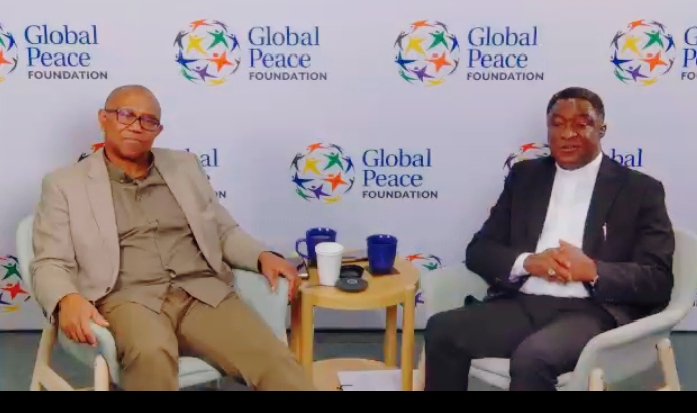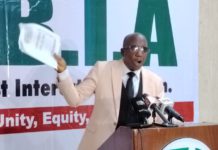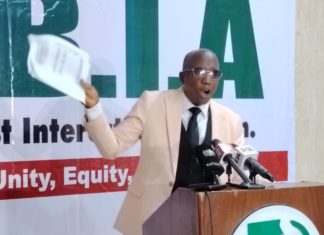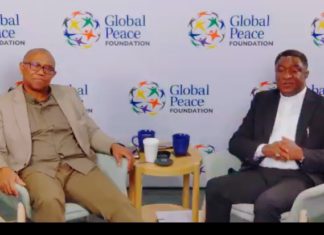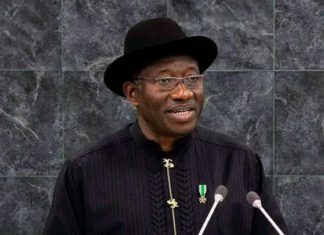Africa Shouldn’t Be Hungry with 60% Arable Land – Peter Obi
…Tasks African Leaders on Ethical Governance, Productive Economy
By Austine Agbo Emmanuel, Kaduna
Former Anambra State Governor and 2023 Labour Party presidential candidate, Mr. Peter Gregory Obi, has expressed dismay that Africa, despite having over 60 percent of the world’s arable land, continues to struggle with hunger and poverty due to ineffective leadership and poor governance.
Obi made the observation while speaking at the Ubuntu Africa Youth Assembly Series organised by the Global Peace Foundation (GPF) under the theme “Ethical Leadership and Empowering Youth.”
The virtual forum, held on Sunday, was part of the African Renaissance Initiative, a continental effort aimed at promoting intergenerational dialogue, strengthening ethical leadership, and inspiring young Africans to take active roles in governance and development.
Obi described it as a moral tragedy that a continent so richly endowed with human and natural resources remains dependent on foreign aid for survival. He lamented that African nations have failed to learn from countries that transformed their economies through visionary leadership and deliberate investment in human capital.
He cited China and Indonesia as examples of nations that achieved economic breakthroughs by prioritising education, health, and entrepreneurship, particularly through the promotion of small and medium-scale enterprises (SMEs).
“With 60 percent of the world’s arable land, Africa should not be hungry,” Obi declared. “Niger State alone in Nigeria can feed the entire West Africa if properly developed. Our problem is leadership, not lack of resources.”
The Labour Party standard-bearer urged African leaders to embrace the Ubuntu philosophy, which emphasises collective growth, shared humanity, and moral responsibility. He explained that the expression “I am because you are” reflects the spirit of community and compassion that must guide leadership across the continent.
According to him, leadership in Africa has largely become a personal enterprise rather than a service to the people. He warned that corruption, selfishness, and lack of accountability have continued to undermine progress and weaken public trust in governance.
Obi described Africa’s youthful population—estimated at over 400 million—as the continent’s greatest asset, urging governments to create enabling environments for innovation, skills development, and productive engagement of young people.
“Nations are measured by the quality of their human capital, not by their mineral wealth,” he said, stressing that Africa’s future depends on its ability to convert youthful energy into economic advantage.
He dismissed suggestions that his criticisms amount to demarketing Africa, insisting that his advocacy is driven by a genuine passion to see the continent rise through honesty, hard work, and leadership anchored on character and competence.
Drawing a comparison, Obi observed that countries such as the Netherlands—despite having limited arable land—export food to the world, whereas Africa, with its vast fertile land, remains dependent on imports. He described the situation as a paradox created by poor policy direction and lack of productivity.
He maintained that Africa’s biggest challenge is not poverty but leadership failure, which continues to waste opportunities and frustrate the aspirations of its people.
Earlier in his opening remarks, Rev. Fr. Canice Chinyeaka Enyiaka, Director of African Peace Initiative and Engagement at the Global Peace Foundation and anchor of the session, reaffirmed the relevance of the Ubuntu philosophy to Africa’s moral and social transformation.
He linked the discussion to GPF’s global vision of “One Family under God”, a principle which, according to him, recognises the common humanity of all people and calls for compassion, justice, and mutual respect as the moral foundation for peaceful coexistence.
Fr. Enyiaka explained that the One Family under God framework serves as a guiding vision for ethical leadership, civic responsibility, and community engagement across Africa. It seeks to inspire leaders and citizens to transcend ethnic, religious, and political divides in pursuit of a shared purpose, building societies grounded in fairness, integrity, and service.
“Africa’s transformation begins with a moral awakening,” he noted. “We must see ourselves not as separate tribes or nations but as one family under God, bound by shared responsibility to build a continent that reflects our values and hopes.”
He said the forum was designed to mobilise African youths to embrace community-driven leadership, uphold ethical values, and become agents of peace and good governance.
Fr. Enyiaka commended Obi’s call for value-based leadership, describing it as consistent with GPF’s vision of cultivating leaders who are morally grounded, socially responsible, and dedicated to the common good.
He urged young Africans to rediscover the moral wisdom embedded in their heritage and to translate it into practical leadership that unites, empowers, and transforms the continent.
Africa Shouldn’t Be Hungry with 60% Arable Land – Peter Obi

